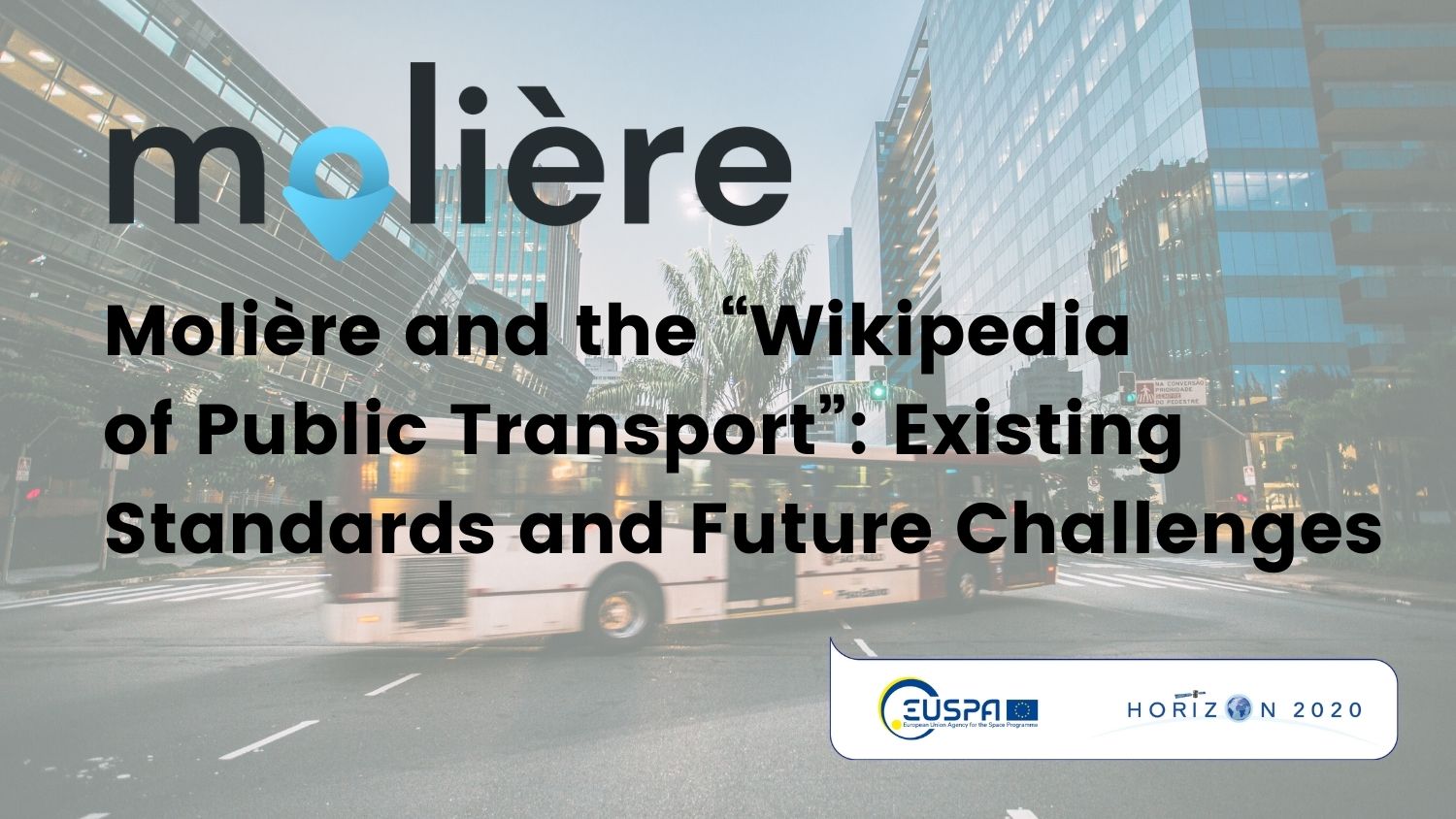The “Wikipedia of public transport and new mobility data” foreseen in Molière needs to be aligned with data sharing standards. Many institutions are working on data specifications worldwide on different topics. Today, the common mobility specifications are:
- GTFS (General Transit Feed Specification) is a project initially developed internally by Google, and started in 2005 (in Portland, Oregon). It was the first project on mobility data standardization.
- GBFS (General Bikeshare Feed Specification), based on GTFS, provides standardization for transit schedule and routes. It was adopted in 2015 by the North American Bikeshare Association to share real-time information with mobile apps.
- MDS (Mobility Data Specification) is an open source project of the Open Mobility Foundation. Its objective is to help local government interact with mobility operators. It has been implemented since 2018 in Los Angeles. Currently, more than 50 cities in the US are using it. In Europe, the start-up Vianova is the first third-party to propose an MDS-based tool for city administrations.
- GOFS is an open data standard led by MobilityData (a non-profit organization based in Canada). The objective is to gather on-demand services in a common platform.
- TOMP-API is developed by TOMP (Transport Operators and Mobility as Service Providers) to provide the required background to help implement MaaS (Mobility-as-a-Service) in Europe.
- MDC (Mobility Data Consortium), launched by SAE (Society of Automotive Engineers) International is designed to define the best practices for data management. The aim is to focus on defining privacy standards.
These mobility standardization initiatives have many challenges. One of them is to deal with specific city regulations. As an example, Los Angeles, like some other cities in the world, has specific city operating regulations. In this case, mobility operators ought to share their data to operate in the city. For Los Angeles, the data that is shared includes real-time location (within 5 seconds), routes and past location (routes travelled within 24 hours).
Data privacy issues also cause uncertainties. Many academic papers have been written to address data confidentiality issues in mobility, especially when data are collected and processed by private operators. Studies from the Massachusetts Institute of Technology and the University of Texas have concluded that reverse engineering would allow riders’ sensitive data to be retrieved.
Furthermore, the start-up ecosystem is working in this direction. As an example, Vianova, a start-up operating in Europe offering data-related services, assures that their product (also based on MDS) is fully GDPR-compliant. Since MDS guarantees secure, anonymous data, the start-up adds an additional layer on privacy and security. The European start-up claims that data sharing has a twofold benefit. For mobility operators, the advantage would be to be well informed. The real benefit would arise, for example, in the case of a special event such as a demonstration or construction work. In this situation, the mobility operator would be informed about the event, so that parking of their vehicles outside the concerned areas could be ensured. For cities and transport operators, data sharing would be useful to adjust policies (parking fees for instance) to encourage desired mobility behaviours.
It is clear that data standardisation offers significant benefits for the world’s mobility ecosystem. At the moment, innovative mobility solutions are invading our cities, IT companies are entering into the transportation market and new players are having an active role in mobility. There is a change in the data mobility world and need to be standardized. However, some challenges need to be tackled in the near future to find a common pattern. With most probability, the most important one will be defining where to set the line between data requirements enforced by the local administrations and privacy rights.
SOURCES
https://medium.com/vianova/pioneering-the-implementation-of-mds-in-european-cities-with-vianova-d5cc0d9310f8
https://www.autonomy.paris/en/opinions/mobility-data-sharing-and-standards-openness-or-monopolies/



